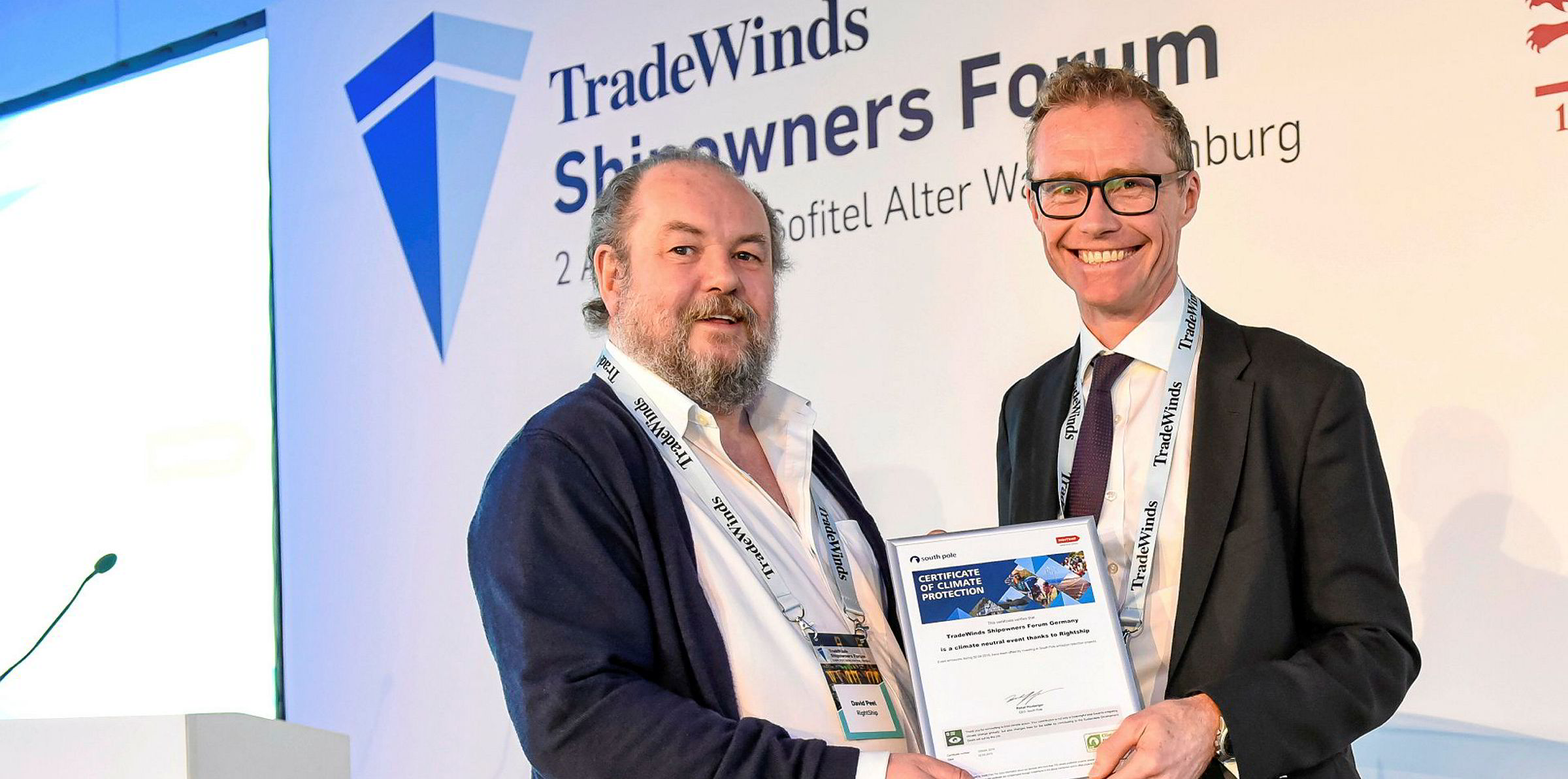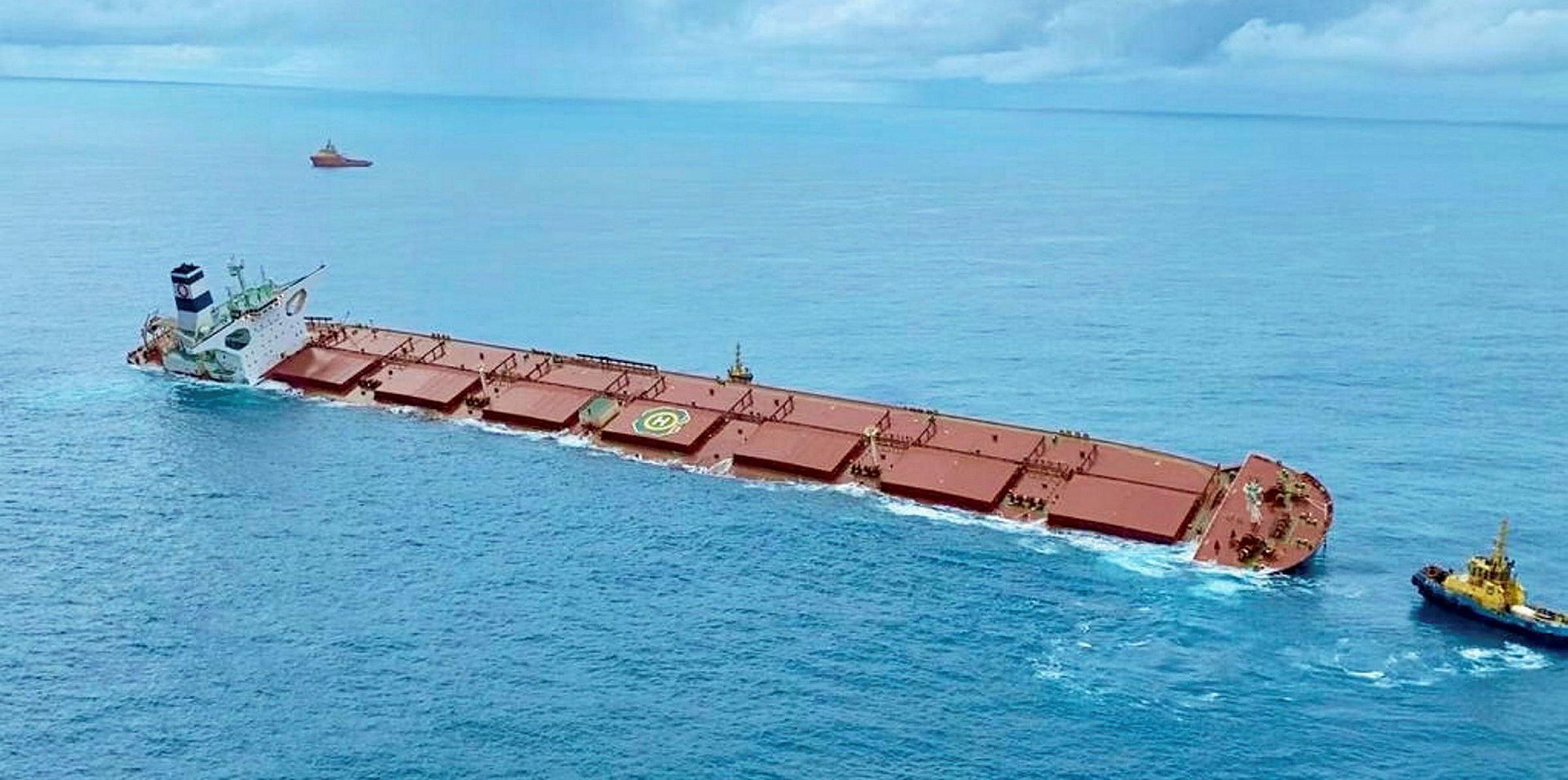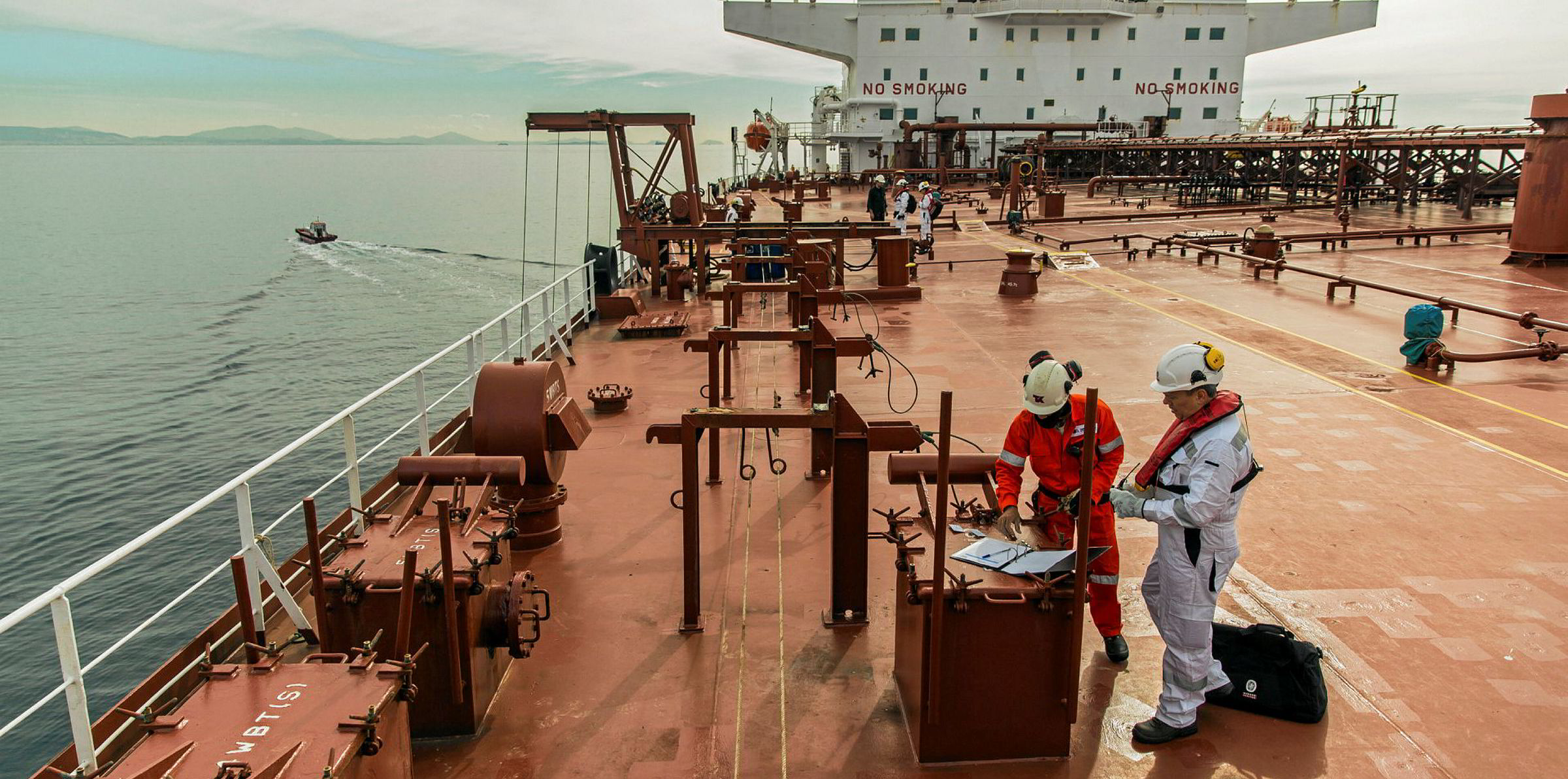Last week's launch of new charterer and owner-driven safety standards for bulker operators has been a long time in the making.
The seed of the idea was planted in Greece 10 years ago when David Peel, the European manager of risk management company RightShip, was talking about the lack of common benchmarks for dry cargo vessels with Enterprises Shipping & Trading president and managing director George Sarris.
Peel, a veteran of 50 years in the industry, including 21 at sea, told TradeWinds: "I was talking with George at Enterprises. They already had a version of the Oil Companies International Marine Forum's [OCIMF] Tanker Management and Self Assessment [TMSA] guidelines.
"We said we should have this for the bulker industry. We talked to other people and they said someone needed to do it," Peel said.
RightShip stepped in with funding for the Dry Bulk Management Standard (DBMS) project, and Peel said: "It's our gift to the industry, a chance to give something back.
"But you have to bring people along with you, rather than imposing something, so it takes time. It's not something you can knock together overnight."

A fragmented approach
Luke Fisher, RightShip's project leader for the DBMS, said he became involved about 12 months ago, with a lot of the background work already done.
"Lots of companies had their own management systems, but they'd developed these on their own, in their own silos," he said.
"We're filling the vacuum and getting everyone together.
"You could say we're a decade too late with this, but it's a great time to launch it now. There is a need for a global set of standards."
Peel added: "We have to take our hat off to OCIMF. Tanker safety standards have improved out of all proportion since TMSA was introduced, but this is now our time in the sun."
Crucial differences
However, Fisher cited differences between the two systems.
"We've broken it down into bite-size chunks to help the smaller companies," he said. "We also have areas such as crew mental health and cyber security management.
"It's inspired by TMSA but designed for bulkers."
Six companies have formed the initial working group, not all of which wanted to be identified. But Victor Restis-controlled Enterprises Shipping & Trading and fellow Greek owner Neda Maritime Agency have been heavily involved.
Fisher said: "Now this goes out for review and updates, with a view to version one of the standards being finalised towards the end of the year or early in 2021.
"We realise people are focused on other things right now, so I wouldn't like to put a deadline on it."
Peel said the DBMS represents standards devised for the industry by the industry.
But is there a danger standards could be watered down due to its being developed by the very people who will then implement it?
Fisher said: "When we're in the working group and someone put their hand up and said something might be too difficult for the smaller companies, I asked them, 'Well, is this too difficult for you?' And they said, 'No'. So why would it be too difficult for others?"
RightShip is owned by big charterers Rio Tinto, Cargill and BHP.
OCIMF's ship inspection report programme has been in place since 1993 to improve safety standards.
It, too, is notionally voluntary for owners and operators, but it has effectively become a "licence to trade".
Not just for charterers
Fisher emphasised the standards are there to benefit the shipping companies and their crews, not just charterers.
The idea is to drive collaboration and conversation in the market, with a view to ultimately improving standards for managers and crews.
The standards are still in their draft format to encourage input from all industry players.
They are available on the DBMS website, where owners and operators can download them and provide feedback.
The voluntary programme is designed to allow shipmanagers to measure their Safety Management System (SMS) against agreed industry standards.
And RightShip said the aim is to go beyond International Safety Management Code standards and allow operators to "stand out from the crowd".
The draft guidelines focus on 30 sections of management practice across the four most serious risk areas faced in vessel operations: performance, people, plant and process.
RightShip added that the DBMS will grade the excellence of a company’s SMS against measurable expectations and targets without involving the burdens of excessive inspections.






